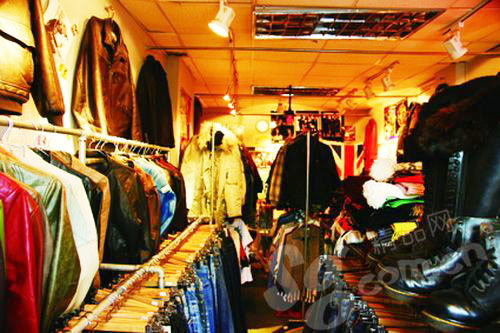Second-hand fashion revives classic virtues in China's middle class

A chief executive officer at an IT company, Lin Jiang is one of Beijing's new rich, but he spurns flash department stores.
Once a week, Lin goes to a small shop near the Beijing Railway Station to look for vintage jewelry.
"I have just found an emerald bangle with delicate carving. It's rare and the price is reasonable," Lin says.
The shop, Rain-WOW Consignment, sells all kinds of second-hand luxury goods, from brands like Louis Vuitton, Gucci and Hermes, and including bags, jewelry, watches, clothes and shoes. Most of the goods are nearly new.
"When it comes to luxury goods, it really doesn't matter much whether they are new or used. The uniqueness and quality are the most important," Lin says.
He began collecting vintage goods while living abroad. "One of my friends liked my watch and wanted to exchange it with his, which was more expensive. He liked the design," Lin says. "Gradually I understood that owning a favorite thing is more important than whether it is new."
The prices at Rain-WOW Consignment are also a draw. "Here I get good stuff at good prices. The bangle I bought could go for twice the price if I wanted to sell."
The shop has rules to guarantee quality and gives quality certificates for jewelry.
Rain-WOW Consignment has seven outlets in Beijing, making it the city's largest vintage chain store. The flagship shop near the Beijing Railway Station opens from 10 a.m. to 8 p.m. seven days a week.
"We get busy at around four o'clock in the afternoon," says shop assistant Huang Xiaohua. "Most of the customers are Chinese from around the country. Jewelry sells best."
Lu Runwu, chief executive officer of Rain-WOW Consignment, started the business three years ago.
"The idea came to me when my rich friends found it hard to deal with luxury goods they no longer liked or needed," Lu says. "When I lived in Switzerland, recycling was a common part of the low-carbon lifestyle. I thought I could introduce it to China."
However, it failed to find a market initially.
"At first, not many Chinese liked second-hand goods. They thought their value was diminished, but gradually they accepted it as their awareness changed," Lu says.
Lu pays about 1.3 million yuan (194,320 U.S. dollars) for Rain-WOW's annual rent.
"We can break even during the week and make a profit at the weekends," she says.
FASHIONABLE VINTAGE
Although economy is a virtue for China's older generations, many of China's consumerist urban middle-class and new rich consider second-hand goods "cheap."
China became the world's second largest luxury market following Japan in 2009, with an annual sales of 9.4 billion U.S dollars, according to the report by World Luxury Association in December last year.
Many top-tier luxury brands have outlets in not only major cities like Beijing and Shanghai, but also provincial capitals even in remote western regions.
Common wisdom in the luxury market is that China's rich love the expensive -- the more expensive, the better business is. But some are changing their attitudes.
Financial worker Jiang Xiong came into Rain-WOW looking for a birthday present for his wife a month ago.
"The bag from Rain-WOW looks much the same as the one at the department store, but the price is almost half," he says. "This is a reasonable buy. It felt like saving the difference that a new one would have cost -- and my wife liked it."
He admitted that many of his friends would find it offensive if he gave them used luxury goods, even if he did it out of good will, for environmental or economic reasons.
"But buying something from a vintage shop is different. You will be considered rational and clever, not blinded by the brand's pretty advertisements or promotions," Jiang says.
The market is lively. Rivals include Vogue 2, set up by three 1980s generation men. Mainly a fashion trader, it too got off to a rocky start.
"We suffered hard times after opening, but held on as we believed vintage would be fashionable in China," says Yang Xu, one of the owners. "Now our business is steady. The majority of our clients are white-collar, well-educated young people."
For Duan, a young businesswoman not willing to give her full name, Vogue 2 is a place to dig out unique luxury goods.
"I got a pair of Chanel sunglasses that were only sold abroad, not in Chinese outlets," she says. "Sometimes, I find designer brands that are not commonly seen in China."
 0
0 






